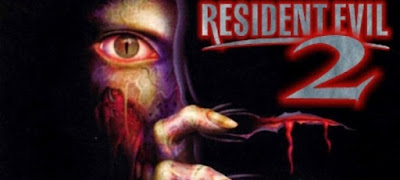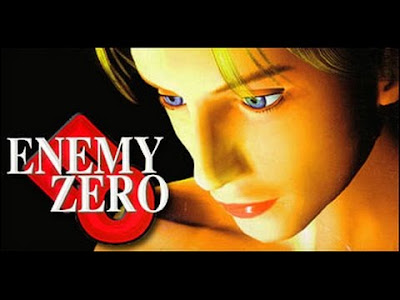On our little chat, we were talking about some famous survival horror games like the old Resident Evil games and we were wondering what happened. Lots of nostalgic moments and memories came from that, but there was this part of the whole argument that really got me thinking.
 |
| The first time we got here, is still one of the most epic gaming moments for many of us. |
My friend stated that the best thing that the old Resident Evil games had was the atmosphere of not knowing anything about it. Now let's make a thought exercise and follow the Resident Evil example:
You arrive at a mansion, trying to rescue a military squad that was missing in action, then you get inside to this nice looking place only to find that is crawling with all kinds of creatures that shouldn't even exist. The first time everybody played this we felt the intrigue, violently building up from the moment we found the first zombie and see that low resolution video of it munching on a dead soldier's body. Now this is what was going through my mind at that point:
Old Mansion + Lots of doors + Zombies... I think that I'm going to spend a lot of time figuring this out, but I will do it because it intrigues me and I want to know more.
The feeling was special to say the least. At the time it felt huge (like taking a cross-country trip without knowing where you will end up) and it took a lot of exploration, discovering new places, reading documents, solving puzzles, surviving and watching cutscenes in order to finally get to that underground laboratory for the first time and go like "What? A lab in this place?". That was the moment when the game's story was at its peak and that precise point was what made it all so worthwhile.
 |
| Some consider this one the best in the series, I personally see it tied with Code Veronica. |
Resident Evil 2 gave us another dose of that feeling, but on a bigger scale. Now the whole city was infected and I was playing as a rookie cop/rebellious biker girl that had no clue of what was going on. By then we all knew that the creatures existed and we knew that they were man made, but at the same time we had lots of questions like how the virus got to the city and what kinds of creatures it could had spawned there. Our answer came as we began exploring the police station and progressed from there, finding creatures such as the lickers and the giant croc that wanted to have us as as a tasty snack.
From there on, we kept discovering things and the more we knew, the more we wanted to know. At that time, we had already mastered the now criticized tank controls, weird aiming mechanics and cheesy voice acting because we had to know where it would all lead up to. It was like starting to read a good book at 8:00 pm only to be hooked by it and keep going through the night even though you know that you have to work/go to school on the next day. It was that powerful.
I could go on and on about every Resident Evil game, but let's get to the point. The charm of these early manifestations of the survival horror genre (something that was also used by other games like Silent Hill) was that a great deal of the main problem in the storyline was hidden to us, even when we knew who our enemies were. It was this feeling of mystery and hopelessness mixed with stress and been lost in a place you don't know anything about, the thing that made the old school survival horror experience to be so special and that is the aspect that was missing from the cool, but not epic horror games that we got at the beginning of this generation. They had the atmosphere and game mechanics right, but they lacked the WTH is going on factor because even when they tried to hide it (like they did on The Evil Within) we had this sort a of faint foresight about what was going on that didn't let us use our imaginations at full power.
 |
| Another one of my favorites, underrated Saturn game that followed the formula you will soon read about. |
So this the point when all our thoughts were gathered and we came up with the survival horror ambiguous storyline theory. This theory states, that for a game to be a true heir of the survival horror roots it needs to have a story that leave us lost and wondering up until it peaks, a continuous affair with no divisions like chapters or places you can't go back to and having the sense of discovering things by our own rather than holding our hands and/or structuring the game into established objectives. Anything less of this makes the game to be an action game with horror elements and anything more than this is to be considered experimental (like some horror indie games).
This was the reason why the newest games are not clicking with some of us us in the same way that the old ones did. They gave us unnecessary foresight on what was happening, were structured in chapters and objectives leaving little to no space for backtracking and while they were fun, they weren't the survival horror revolution we were hoping for. If we were to compare these games with a cake, we can say that instead of been a chocolate cake, it was a vanilla one coated with chocolate frosting, which tasted good, but was not as satisfying.
 |
| I found this as an adult and the tension and scare factor it brought was amazing considering this is a SNES game. |

No comments:
Post a Comment